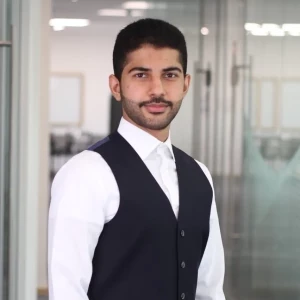I have heard conflicting advice about using Case in Point. Do you guys think it is still a good prep resource? I’m debating about getting VC as a back-up but also want to make sure I’m not limiting myself. Do you guys think the whole framework approach is outdated? Starting to prep for interviews and would appreciate your advice!!!
How good/relevant is the Case-in-Point book for case prep?

Dear Anonymous A,
This is a great question! I hope others can benefit from this debate.
I will answer your question bluntly:
Marc Consentino’s Case-in-Point book has become outdated and is no longer a good resource for Case prep.
I will agree that the book has some useful commentary narrated in a jocular tone to effectively ease newbies into the tradition and nuances of the Case Interview. However, beyond this, the actual meat of the book, which is centred around the so-called Ivy Case System, is outdated and largely ineffective to achieve top-quartile performance at actual interviews.
Client problems are way more complex than the frameworks presented in the book. Consultants have become way more sophisticated in the way they approach problem-structuring and hypothesis-generation.
Case-in-Point, I argue, tricks candidates into believing that mastery of a finite set of frameworks translates into mastery of the entire Case interview process.
As I provide an illustrated critique of the Case-in-Point philosophy backed up with an alternate perspective on what actually constitutes good preparatory resources, I’d like to present a realistic scenario that demonstrates why candidates looking to excel need to move away from the Case-in-Point philosophy.
Your client is the government of the United Kingdom working with MI5 in south-west England.
They are concerned about the spate of Novichok incidents in the Salisbury area which has resulted in one fatality and three serious injuries in the last four months. They have reason to suspect that further incidents will take place through the summer and into the autumn, and would like to develop a state-of-emergency protocol to:
+ limit the number of future fatalities
+ locate and isolate all traces of Novichok from the country
+ restore business and security confidence to the area which has taken a hit since these cases came to light
Our client is keenly aware of the security sensibilities of this case and needs to maintain discretion. They are also keen to avoid bad press and insist that the approach to this problem be low-risk, high-impact. England is scheduled to host the upcoming G-20 summit taking place in August and our client wants to show major progress by then. How would you go about advising the client and delivering on their 3-pronged criteria for success in this case?
Illustrated Critique
This, friends, is your Case prompt.
This, friends, is also a realistic scenario on which a consulting firm could be called upon to advise.
As you think about this hypothetical example, which is realistic of some of the kinds of complex problems today’s consultants are being asked to solve, which of our magical frameworks do you think is the best approach:
Should we model a profitability schedule for this? Or perhaps the 4Ps might do? There are always the 3Cs to consider (or are there 4cs now? Or 5?), and if they don’t work we can always use Porter’s 5-forces blended in with the 7Ss, or the 9…you get the point, right?
There is no ‘framework’ for this sort of problem.
Here’s some truth:
Of all the excellent candidates and eventual consultants I’ve come across, none used frameworks to achieve success at interviews or client cases; none can walk me through the elements of the most over-used (and tragically out-of-date) frameworks.
Of all the problems I’ve encountered myself, none have truly lent themselves to frameworks. And in all of my consulting interviews at MBB, 100% were real problems that required independent problem-structuring to solve. In those case, frameworks would have failed.
And, yet, frameworks are the selling point of Consentino’s much-heralded approach.
Alternate Perspective
- How, then, should I design my prep. strategy?
- What resources are available to me based on this more ‘intelligent design’?
Design your prep. strategy along principles that instinctively lead you to approach each problem independently.
For example,
You should aim to look at each problem as the sum of some finite number of ‘parts’.
Break up those ‘parts’ to define how they contribute to the problem being presented.
Analyse those problems and design categorised recommendations to tackle each of the main ‘parts’ of the problem.
If all of the above sounds about woolly and theoretical, it probably is…at this stage. There are much (MUCH) better resources that explain this better than I have tried to do above but the key is this: when you learn to conceptualise and structure problems on their own merits based on protocols rooted in logic, and adopt pragmatic diagnoses and recommendations in finite categories, you will quickly see the inferiority of standard frameworks and wonder what the fuss is all about.
On starter resources, I would broadly recommend the following:
- Victor Cheng’s suite of resources, contrary to what some have said, are an excellent starting point to wean you off of frameworks (if these are already your crutch), or condition your thinking to be framework-independent (if you’re just starting your prep. as you seem to be doing). These resources do not necessarily teach you how to crack the case. Rather, they teach how to think about problem-structuring in an independent, non-theoretical way.
- Live workshops at top Business Schools are admittedly less accessible to a mass market. Yet, they incorporate real life examples of how tricky client problems truly are and how consultants are thriving in a world where frameworks are irrelevant and/or counter-productive. Every year, at the start of the recruiting season, the top consulting firms roll out their best and brightest to the top business schools (usually September through November) to provide teasers on what optimal Case interview preparation looks like. If you can avail yourself of this opportunity, don’t miss it.
- High performing Case partners with access to newer Cases would be another resource I would recommend. When I was a candidate, I came across two sets of Cases: the standard business Cases that could be solved with frameworks (I never came across any such Case in my actual interviews); and the really interesting Cases that provided me the opportunity to test the independent, problem-structuring approach recommended by Victor Cheng. A great example of such a Case is the Coyote reserve case based on our conservation client in the south-west of the United States. (If you have not done this case yet, I highly recommend it at some point as an example of how independent problem-structuring allows you to thrive at, and even enjoy, all sorts of Case problems you will encounter both during your prep. and ultimately in your career!). Of course, an excellent Case is only as good as the Case partner administering it. Seek out those partners who are high-performing, who are unshackled from the limits of the framework approach to problem-solving, and who have access to excellent cases where these independent, problem-structuring protocols work best.
I will stress:
I do not outrightly condemn Case-in-Point or its author.
The learnings from that book have been instrumental in bringing this industry within the access to those whom it would otherwise have been denied.
However, clients have moved on.
And so has the industry.
The smart consultants know that problem-solving, to be relevant today, must greatly exceed the knowledge gap which has been narrowing as clients have gotten smarter.
To level up, you, the candidate, must get smarter, too! :-)

Agree with other responses - case in point is outdated.
The structures outlined might be useful to read through and get some ideas of ways to approach different cases, but by no means should you memorise any of the structures Cosentino suggests and try use them in cases.
Victor Cheng is a much better resource, and I would strongly recommend it over Case in Point. It will give you the core skills you need to solve cases. However, it is not enough to just use his resources, and it is also a little outdated nowadays. The only way to develop solid case interviews skills is lots of practice with serious partners (either expert coaches on preplounge or people that have received top tier offers).
I agree with the earlier comments here about Case in Point Book being a bit outdated. I think there is a problem of relying solely on a book or a set of finite frameworks. It constraints the minds and the approach is not just as effective (at least for me). It has bee a while before I get back into cases then I picked up the Case in Point book that I had from my college roommate like 5 years ago. It was frustrating to remember the frameworks. I quickly ditched the approach. I think this book acts as a great start to refresh my memory on the generic business terms, but the moment we get into the problem solving and doing cases, i would put it aside.

Hi A,
I agree with Tyrison on why Case in Point's usefulness is limited. In my opinion its still a good idea to read it. Here's why:
- Case in point (and other frameworky books) introduce some basic ways and categories of thinking about business on a very superficial level (in this case a good thing!), which allows candidates from non-business backgrounds to get acquainted with them quickly - and most case problems are still business problems
- Read in conjunction with other material (Case Interview Secrets, business school case books etc.) it will allow candidates to built a toolset to "mix and match" approaches to structuring problems in interviews
I do agree though, that this can only be a first step (but in my opinion quite a good option for a first step). Other material (and most importantly practice) must follow for Case in Point to be useful. So don't feel like it wasn't worth reading it, but also don't stop there now ;)
Hope this helps!
Best wishes
Jonathan

Hello!
On top of the insights already shared in the post, next week will be pusblished in PrepLounge´s Shop material related.
In concrete, the "Integrated FIT guide for MBB". It provides an end-to-end preparation for all three MBB interviews, tackling each firms particularities and combining key concepts review and a hands-on methodology. Following the book, the candidate will prepare his/her stories by practicing with over 50 real questions and leveraging special frameworks and worksheets that guide step-by-step, developed by the author and her experience as a Master in Management professor and coach. Finally, as further guidance, the guide encompasses over 20 examples from real candidates.
Here I leave you the link > https://www.preplounge.com/en/shop/tests-2/integrated-fit-guide-for-mbb-34
Feel free to PM me for disccount codes!
Hope you find it useful!
Best,
Clara

Hi, there!
Case-in-point could be used as an insight into case solving, but that's it. It would be better to find a coach and start practicing for the interviews.
Do you still need any help?
GB

Hi,
I think this source is outdated. I personally recommend the LBS case book (in combination with PrepLounge casing and 2-3 coaching sessions).
Hopefully this helps.
Jorn

It's a very popular and good resource. However would not never suggest using it as the sole resource.
For my coachees, I usually recommend to read “Case Interview Secrets” and “Case in Point” in conjucntion. The former, in my view, is still the best material teaching overall approach, mindest and habits, while CIP is good to gain broad experience across specific concepts and case types.

My favorite book! Provides good intro into interview flows.














